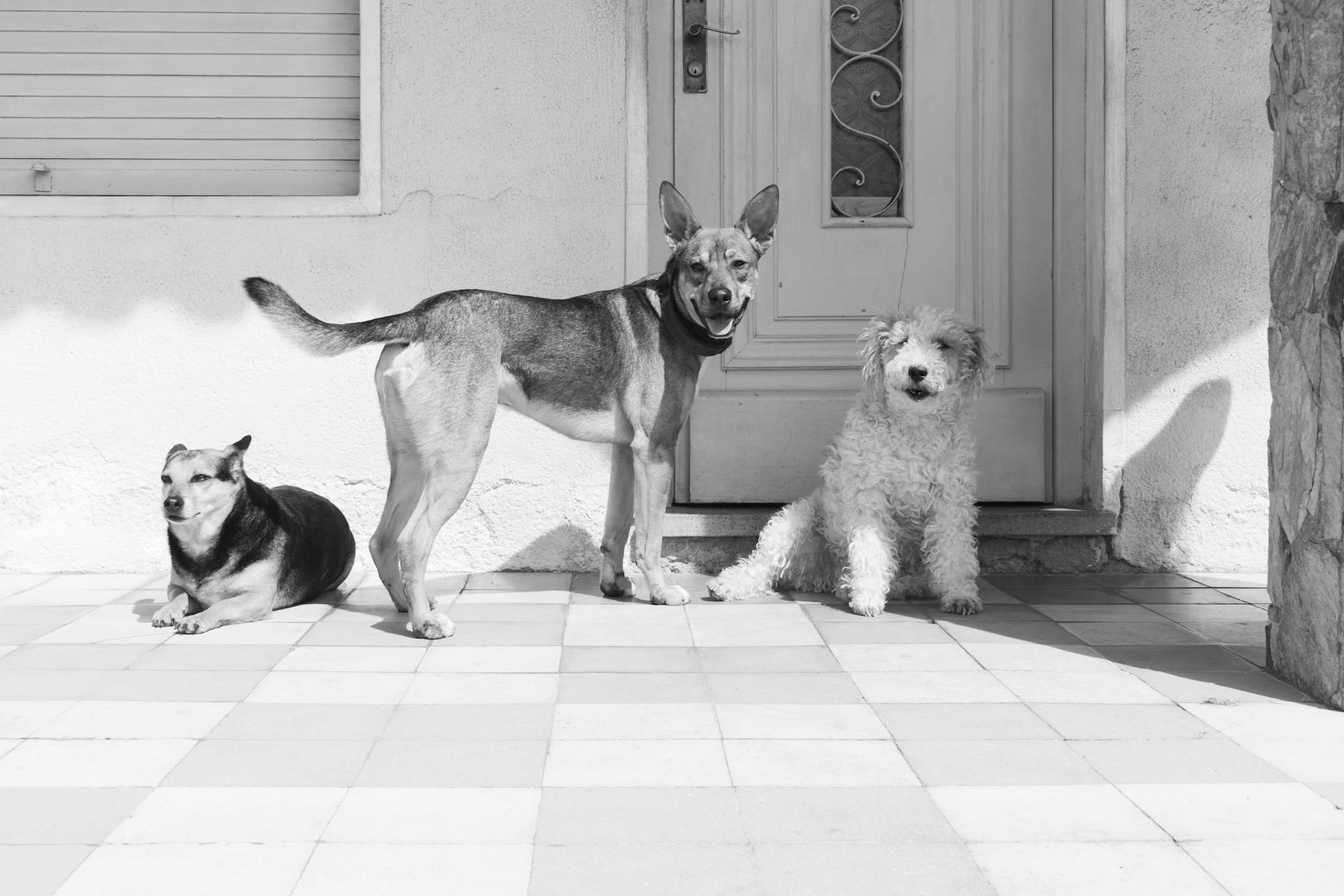
Dogs are notorious for their intense focus on food, which can be both amusing and frustrating for their owners. This obsession is rooted in their evolution as scavengers, where food was scarce and every meal was a precious commodity.
Their keen sense of smell and taste are also major contributors to their food fixation. In fact, a dog's sense of smell is up to 10,000 times more sensitive than a human's.
Dogs are highly motivated by the prospect of food, and their brains are wired to respond quickly to food-related stimuli. This is why they can become so fixated on a particular treat or meal.
Their ability to associate food with pleasure and reward also plays a significant role in their food obsession. This is evident in the way they often perform tricks or behaviors in anticipation of a treat.
What is Guarding?
Resource guarding is a natural dog behavior that's hardwired into animal nature to protect the things we believe we need to survive. It's a behavior that discourages others from taking or getting too close to an object or valued area in the dog's possession.
Guarding resources is a common behavior that can manifest in various ways, from a simple look to a slight baring of the teeth. Patricia McConnell defines it well, as “any behavior that discourages another to take, or get too close to, an object or valued area in the dog’s possession.”
Resource guarding becomes a problem if a dog is willing to bite or fight to keep an item, which can result in dog bites to humans or fights between pets. This is especially worrisome in a home with young children, elderly family members, or if the dog is not predictable in what items or when they decide to guard.
Setting Boundaries at Mealtime
Setting Boundaries at Mealtime is crucial to prevent resource guarding. Giving in to begging allows dogs to associate unwanted behavior with food.
Dogs need to understand that they'll be fed at specific times, regardless of their behavior. This helps establish a routine and reduces stress at mealtime.
Respecting your dog's boundaries towards food is also essential. Avoid unfairly punishing them or taking their food away, as this can escalate resource guarding.
A food-obsessed dog may show aggressive behavior like growling, lunging, and barking at people or other dogs approaching while eating. This behavior needs to be addressed before it becomes a safety concern.
To set boundaries, establish a consistent feeding schedule and stick to it. This will help your dog understand what to expect.
Here are some signs of resource guarding during mealtime:
- Freezing (pauses or tension in the body)
- Eating faster
- Braced body position over the food
- Subtle shifting of body weight to "block" the food
- Raising lips and baring teeth
- Ears pinned flat against the head
- Hard stare
If you notice any of these signs, it's best to consult a professional dog trainer to address the issue. They can help you develop a plan to prevent resource guarding and ensure a safe and enjoyable mealtime experience for both you and your dog.
Understanding Obsessive Behavior
Dogs can develop obsessive behavior around food due to various factors, including medical issues and environmental circumstances. Medical issues such as Cushing's syndrome, which is caused by a tumor in the dog's pituitary gland, can lead to an increased appetite.
Some breeds, like the Poodle, Dachshund, Boston Terrier, Boxer, and Beagle, are more prone to Cushing's syndrome. Parasites, such as hookworms, roundworms, and tapeworms, can also cause an increased appetite in dogs. These parasites can be inherited from the mother or acquired through licking contaminated eggs.
Here are some common signs of poor gastrointestinal absorption of nutrients:
- Chronic diarrhea
- Weight loss
- Pica (eating non-food items)
- Dehydration
- Increased panting
- Bloated abdomen
- Excessive drinking and urination
Signs of Guarding
If you notice your dog freezing or pausing briefly, it may be a sign of resource guarding.
In more intense cases, a dog might growl, lunge, or bite when someone approaches their food or other valuable items. These are clear warning signs that your dog is feeling possessive.
Eating faster than usual or taking an item and moving away can also be subtle signs of guarding behavior. A certified dog trainer or behavior consultant may be able to recognize these signs before they escalate.
Some other signs to look out for include a braced body position over an item, subtle shifting of body weight, or side eye staring at someone approaching. Your dog may even raise their lips and bare their teeth or pin their ears flat against their head.
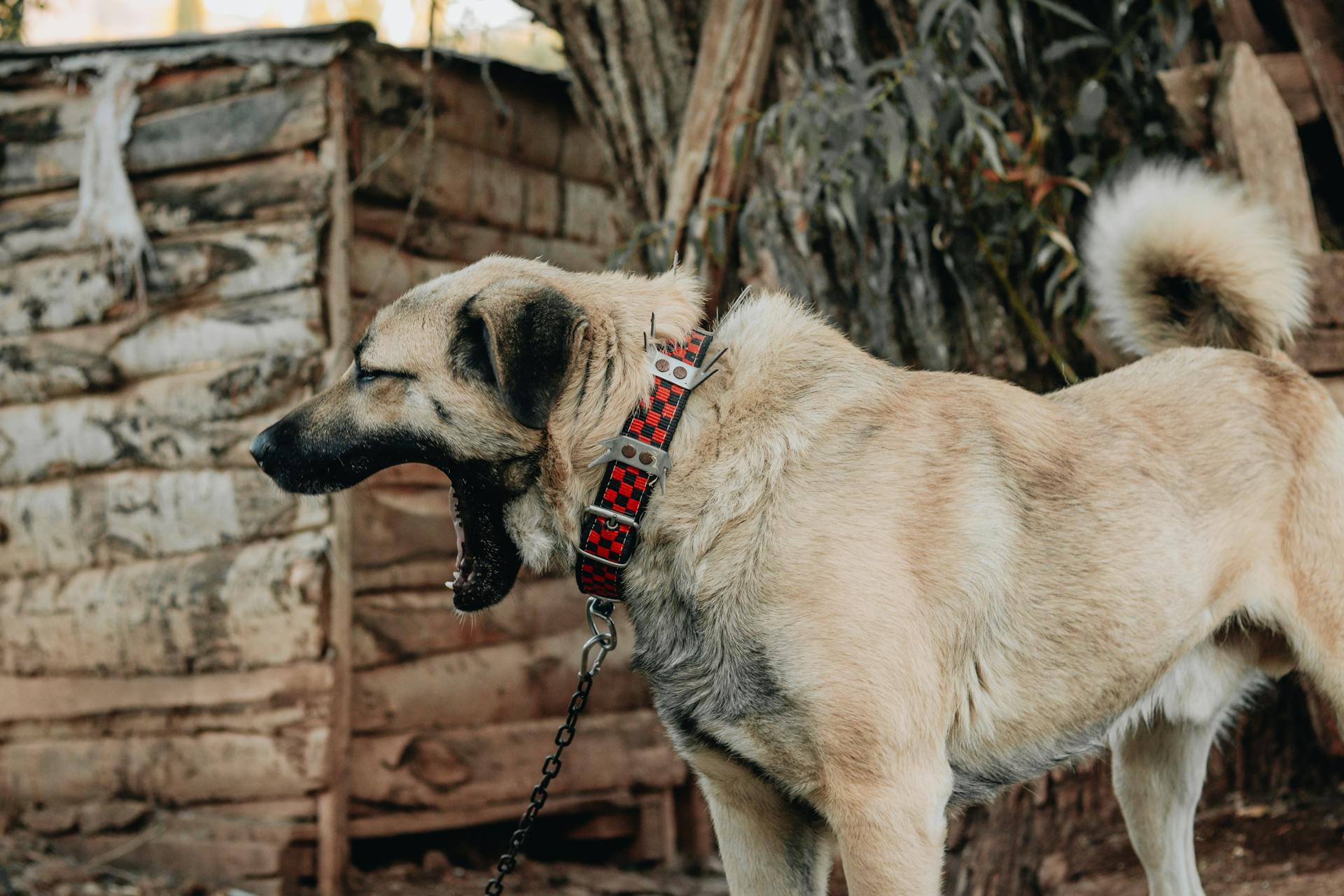
Here are some common signs of resource guarding:
- Growling
- Lunging and Air Snapping
- Chasing you or another animal away
- Biting
- Freezing (very short or longer pauses or tension in the body)
- Eating faster
- Taking an item and moving away
- Braced body position over the item
- Subtle shifting of body weight to “block” the item
- Side eye staring or tracking of the person or pet approaching
- Raising lips and baring teeth
- Ears pinned flat against the head
- Hard stare
Is My Dog Obsessed?
Your dog's obsession with food could be a sign of a deeper issue, such as a medical problem or environmental circumstance. Many factors contribute to this behavior, including medical issues and environmental circumstances.
If your dog is fixated on food, it's essential to consider distractions to keep their mind occupied. Exercise, toys, and your attention can help prevent boredom and keep their mind off food.
Distracting your dog with toys is a great way to redirect their focus away from food, but be aware that your dog may use "sad puppy eyes" to manipulate you into giving in to their demands.
Your dog's obsession with food can also be a sign of a psychological or behavioral issue, such as possessiveness during feeding time or raiding the bin.
Some common conditions that can cause an increase in appetite in dogs include poor gastrointestinal absorption of nutrients, Cushing's syndrome, canine diabetes, and parasites.
If you're unintentionally teaching your dog to be obsessed with food by using treats as rewards, it's essential to recognize the difference between a hungry dog and one that's just craving food. Using body condition scoring can help you determine if your dog genuinely needs more food or if they're just seeking attention.
Why Is My Dog Obsessed?
Your dog's obsession with food can be a sign of underlying medical issues or environmental circumstances.
Some dogs may have had to fight for food in the past, making it hard to break old habits. Adopted dogs, for example, may still be struggling to adjust to a new environment where food is plentiful.
Free feeding multiple dogs can lead to resource guarding and competition over food, which can result in behavioral problems.
Dogs with gastrointestinal issues, such as SIBO, EPI, IBD, or intestinal lymphoma, may experience poor nutrient absorption, leading to increased appetite and other symptoms.
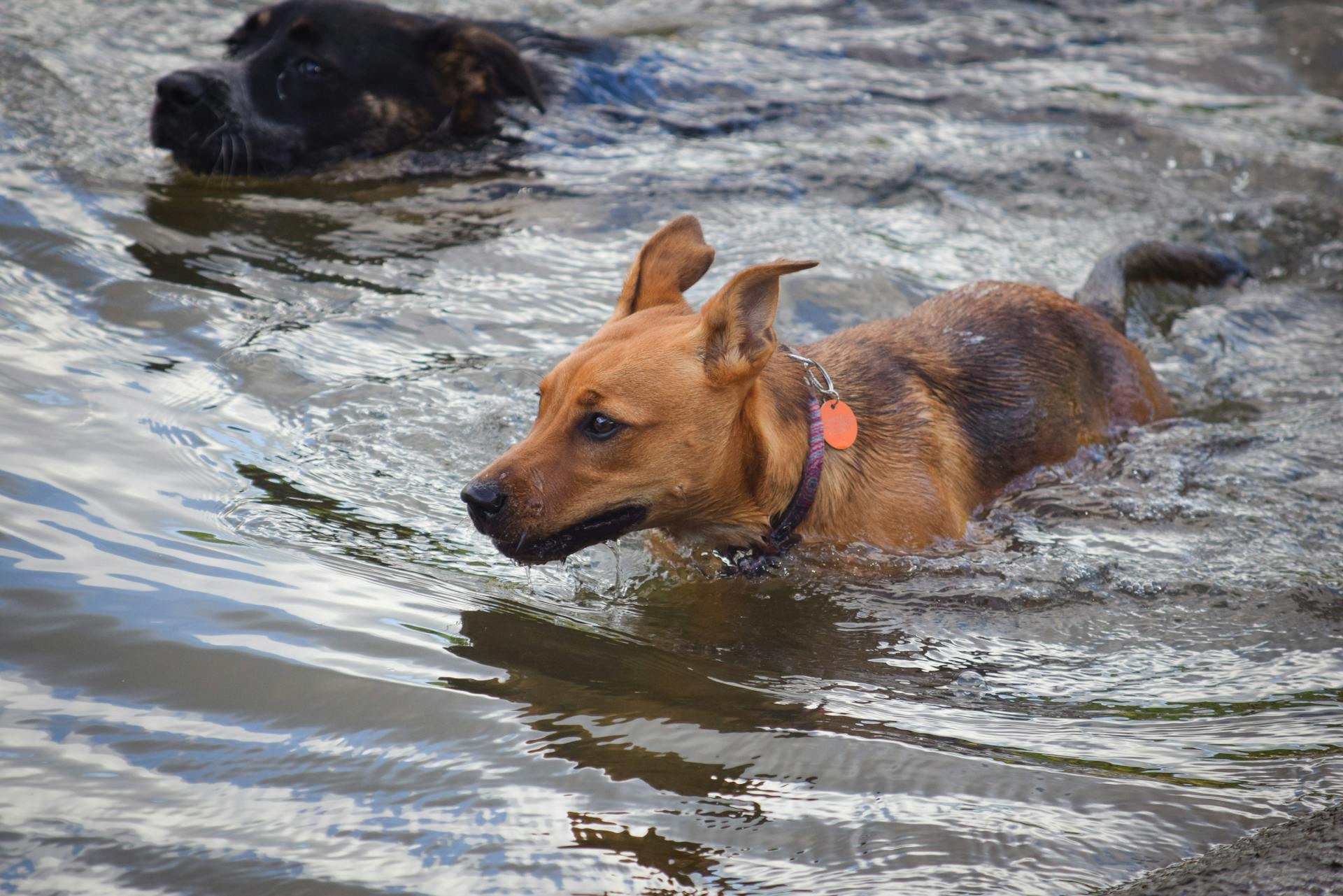
Cushing's disease, caused by a tumor in the pituitary gland, can also increase appetite and lead to weight loss, bloating, and excessive drinking and urination.
Parasites like hookworms, roundworms, and tapeworms can cause malnourishment and increased appetite in dogs.
Your vet may recommend a stool sample to check for intestinal parasites, which can be treated with dewormer or other medication.
Resource guarding, where dogs fight over food, chews, or toys, can be a sign of underlying stress and negative emotional associations.
In multi-dog households, resource guarding can become a problem if the dogs resort to fighting over their resources and the environment is not managed to prevent conflicts.
Your dog may communicate their desire for a resource using body language and vocalizations, and may even engage in ritualized aggression to protect their belongings.
Their Personality
Dogs with obsessive behaviors often have a unique personality trait - they're highly focused on food. Some dogs are naturally more food-motivated than others.
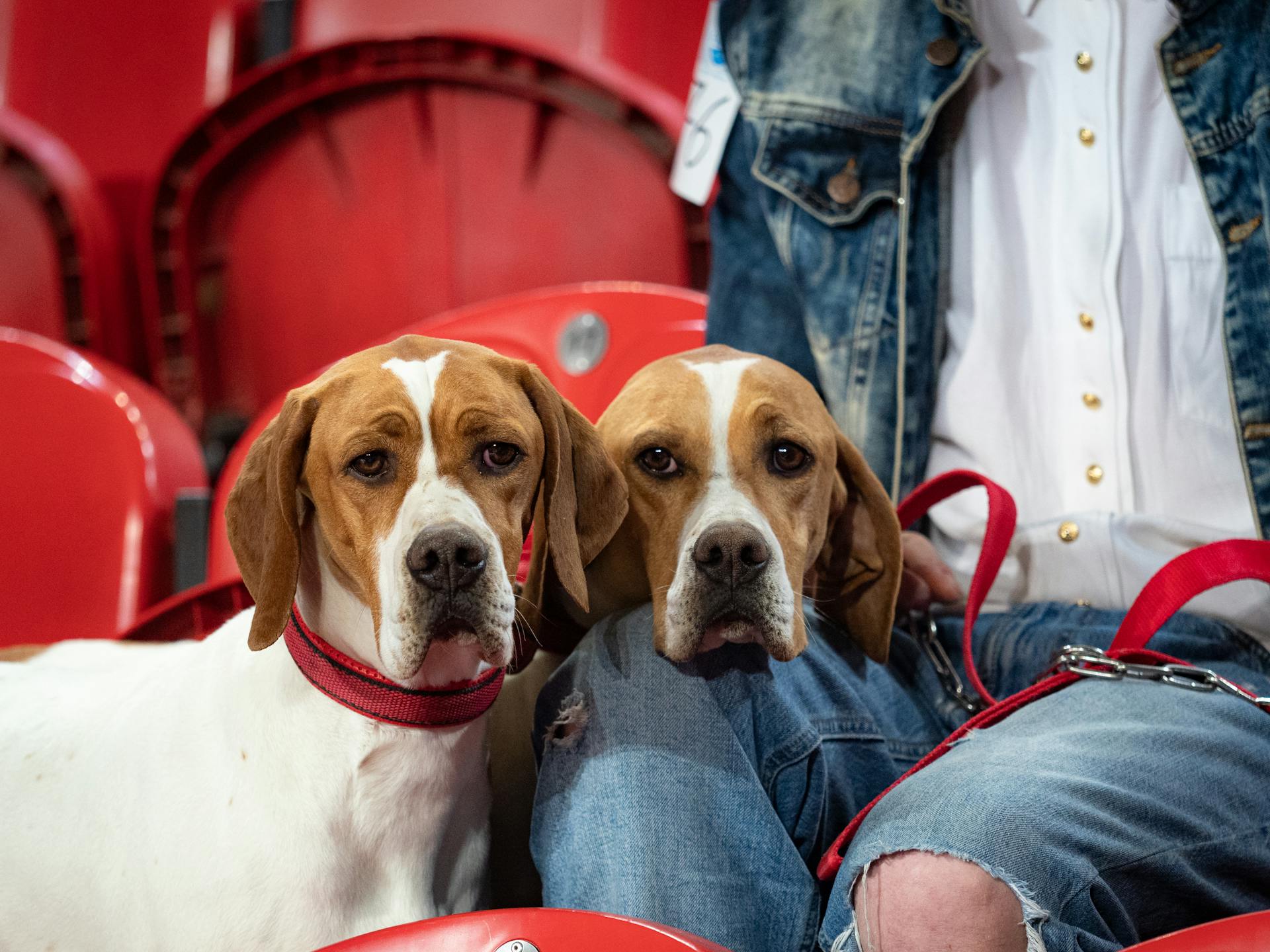
Their genetics play a significant role in shaping their personality, making some dogs more prone to obsessive behaviors. Each dog is a complex mix of genetics and learned behaviors.
Dogs with a strong food focus can be challenging to manage, especially when it comes to mealtime. Some dogs will eat all that is given to them, and then some!
Drop It and Leave It
Dogs that struggle with resource guarding need to learn two important skills: drop it and leave it.
Drop it means letting go of something that's already in their mouth or possession, and it's a crucial cue for dogs that guard food items. Click here to learn how to teach your dog to drop it.
Rewarding your dog with something equal or better helps speed up the training practice and increase your success with the drop it cue. If they drop a low-value chew, they get a high-value treat.
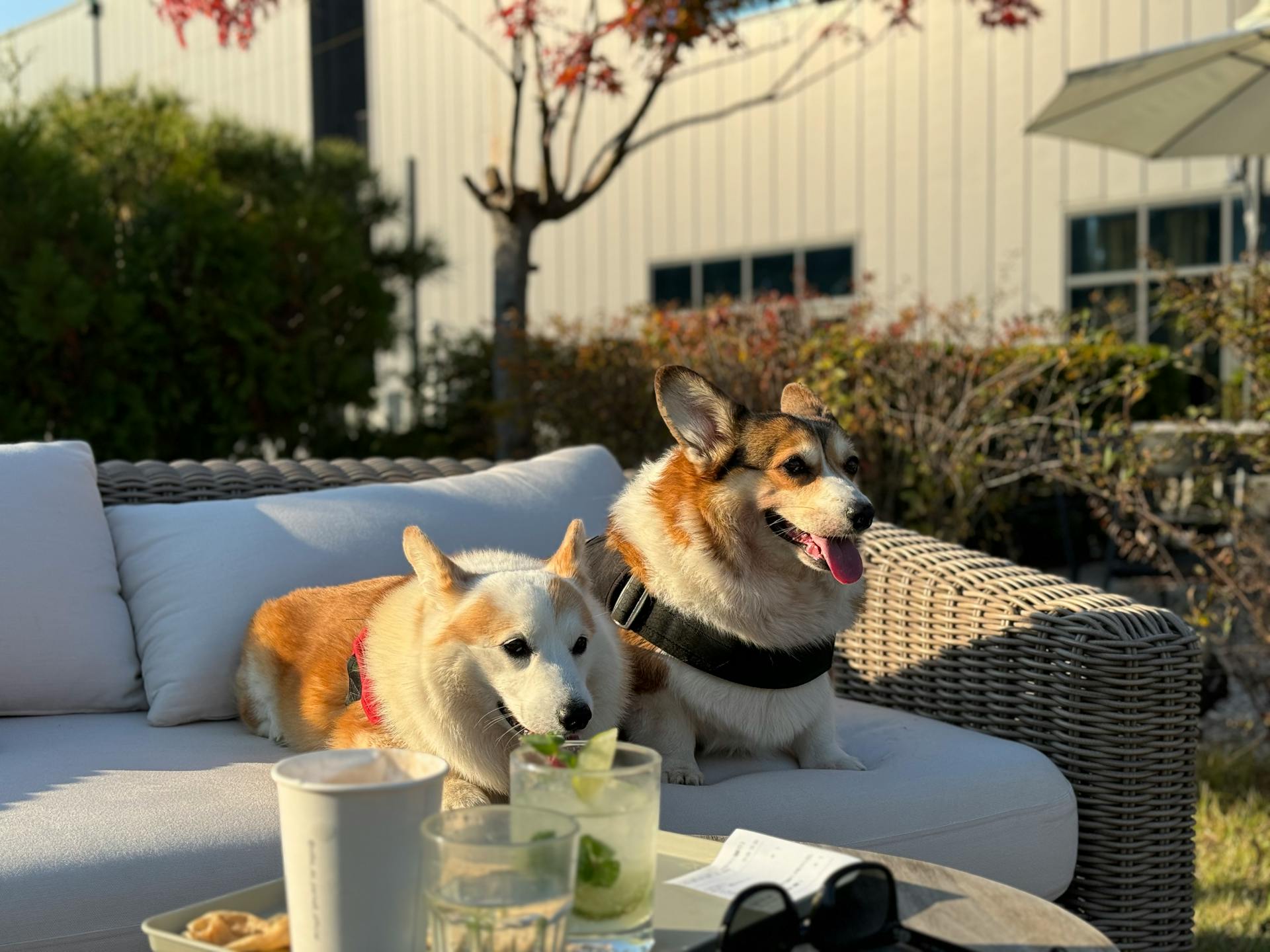
Practicing drop it with toys before moving on to food trades can be a great way to start. This helps your dog understand the concept of letting go without the high stakes of food guarding.
Leave it means turning away from something, and using a reward of equal or higher value can help speed up the training practice and increase your success with the leave it cue.
Causes and Solutions
Dogs' obsession with food can be attributed to their evolution as scavengers, where they relied on finding and consuming food to survive.
Their keen sense of smell, which is up to 10,000 times more sensitive than humans, allows them to detect even the slightest scents of food.
Their brain's reward system is highly activated when they eat, releasing dopamine and associating food with pleasure.
Dogs have a short digestive tract, which means they need to eat frequently to maintain their energy levels.
Their natural instinct to gorge on food in times of abundance ensures they have enough energy to survive during periods of scarcity.
This instinct can be seen in their tendency to overeat, especially if they're fed a single large meal a day.
You might like: Dog Food for High Energy Dogs
What Causes Guarding?
Resource guarding is a natural dog behavior, but it's not always desirable. It's a behavior that discourages others from taking or getting too close to a valuable resource in the dog's possession.
Resource guarding is hardwired into animal nature, just like it is in humans. Access to resources like food, water, and a safe space is essential to survival.
Dogs may exhibit resource guarding behavior around food, toys, or space, which can be a problem if they're willing to bite or fight to keep an item. This is especially worrisome in homes with young children or elderly family members.
Some breeds are more prone to being overweight and hungrier than others, which may contribute to resource guarding. These breeds include Labradors, Cavalier King Charles Spaniels, Cocker Spaniels, Beagles, and Pugs.
Research has found that about one in four Labradors carries a variant of a gene called POMC, which affects how their brain perceives hunger and fullness after a meal.
Habit
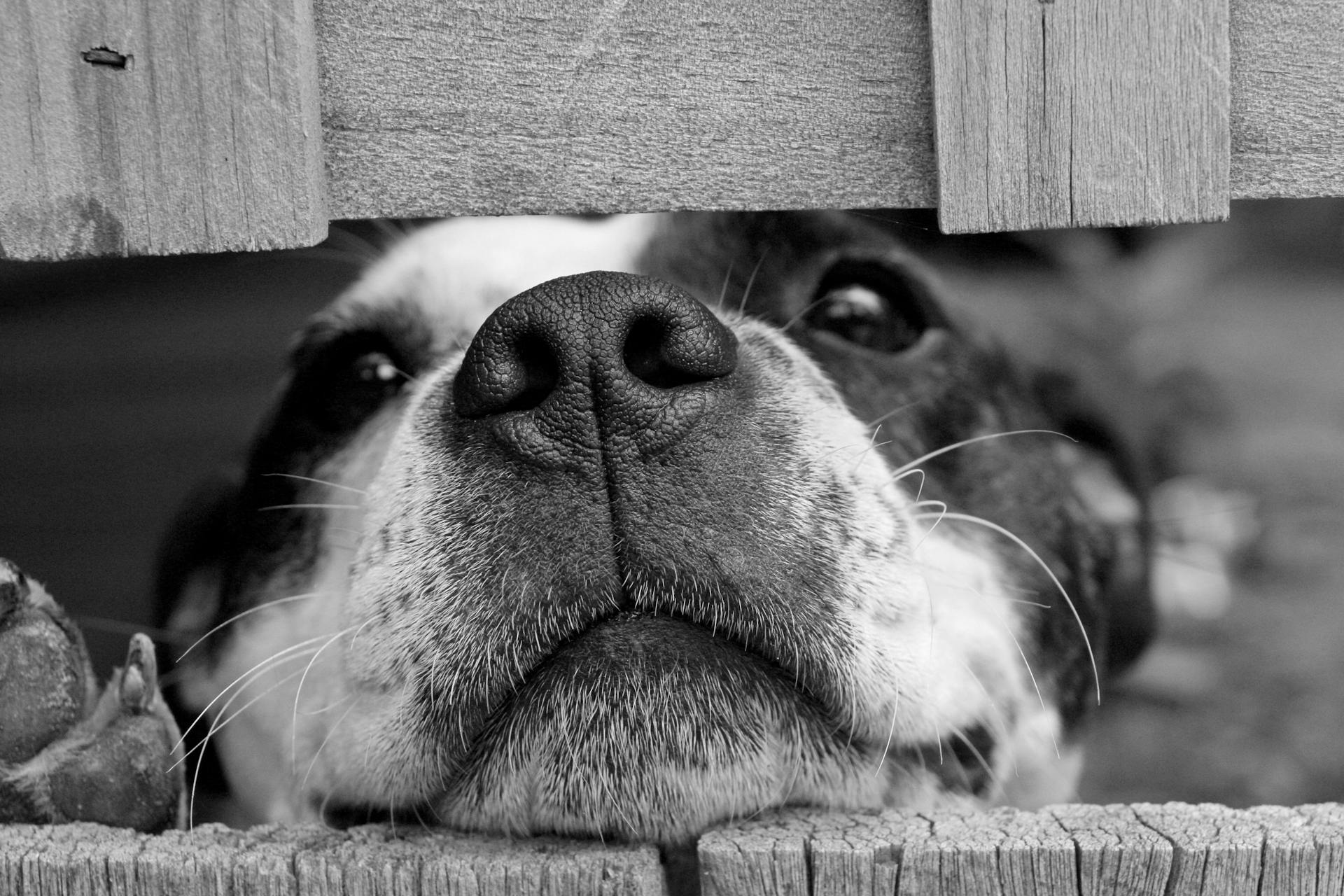
Habit is a sneaky thing that can creep into our daily lives, like giving your dog treats whenever they show their 'sad eyes' face, but dogs are smart and have learned to pull on your heartstrings for a tasty snack.
Dogs may not even be hungry but do it out of habit, and they also don't want to pass up the chance for a tasty treat.
It's essential to recognize these habits and break them to avoid overfeeding your dog.
Causes and Solutions
Some health issues can make your dog hungrier than usual, so it's essential to consider these potential causes.
Metabolic disorders like hypoglycemia and diabetes mellitus can affect how your dog metabolizes food.
Exocrine pancreatic insufficiency (EPI) is another condition that can lead to increased appetite.
Certain medications, such as prednisone and mirtazapine, can also make your dog hungrier as a side effect.
Health conditions like diabetes, Cushing's disease, thyroid problems, and certain cancers can increase your dog's appetite.
A different take: What Food Causes Diabetes in Dogs
Parasites and gastrointestinal problems can also contribute to overeating.
Here are some underlying health issues that might be responsible for your dog's food obsession:
- Metabolic disorders (e.g. hypoglycemia, diabetes mellitus)
- Exocrine pancreatic insufficiency (EPI)
- Inflammatory bowel syndrome
- Hyperadrenocorticism (Cushing’s disease)
- Hyperthyroidism
- Parasites
- Hormonal changes
If you suspect that your dog's increased appetite is due to a health issue, consult with a veterinarian to run the necessary tests and determine the best course of action.
Causes and Solutions
If your dog's food obsession is caused by a psychological origin, temporary correction methods won't be enough to solve the problem.
Understanding the root cause of your dog's behavior is crucial to finding a permanent solution. This involves working alongside a veterinarian to identify the underlying issue.
A sudden change in your dog's appetite can be a sign of an underlying health issue. If your dog has always been a hungry hound, it's worth mentioning at their next vet check-up.
Changes in your dog's appetite can also be caused by stress or anxiety. If you notice your dog eating things that aren't food, or having an upset stomach, contact your vet immediately.
Curious to learn more? Check out: Homemade Dog Food Recipes Vet Approved for Large Dogs
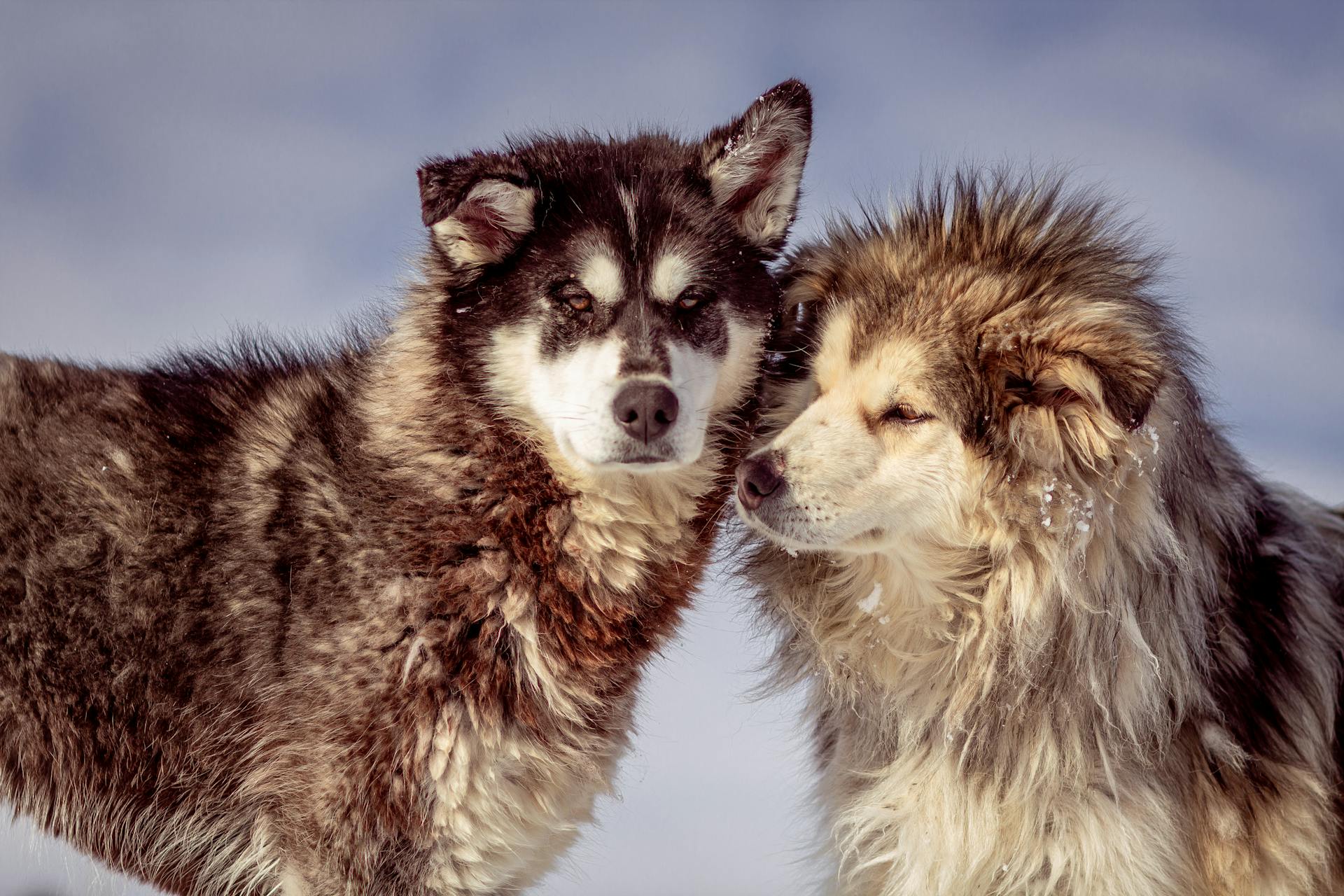
Your vet is the best place to start if you're concerned about your dog's appetite. If they rule out any illness, consider speaking to an animal behaviourist.
Here are some signs that your dog's insatiable appetite may be a sign of an underlying health issue:
- Changes in how thirsty they are
- Being sick or having an upset stomach
- Eating things that aren’t food
- Changes in their weight
Limit Treats
Limiting treats is crucial for our furry friends.
Treats should be used as motivation for exercise routines, providing them when your dog completes an activity they particularly dislike.
Dogs with bottomless stomachs need treats strictly controlled to avoid overeating.
Providing treats for every little thing can lead to overindulgence and unhealthy eating habits.
Sources
- https://www.tampabayvets.net/canine-resource-guarding-food-obsession/
- https://www.dogster.com/lifestyle/food-obsessed-dog
- https://www.thekennelclub.org.uk/health-and-dog-care/health/health-and-care/a-z-of-health-and-care-issues/why-are-dogs-always-hungry/
- https://petpedia.co/dog-food-obsession/
- https://wagwalking.com/symptom/why-is-my-dog-obsessed-with-food
Featured Images: pexels.com


